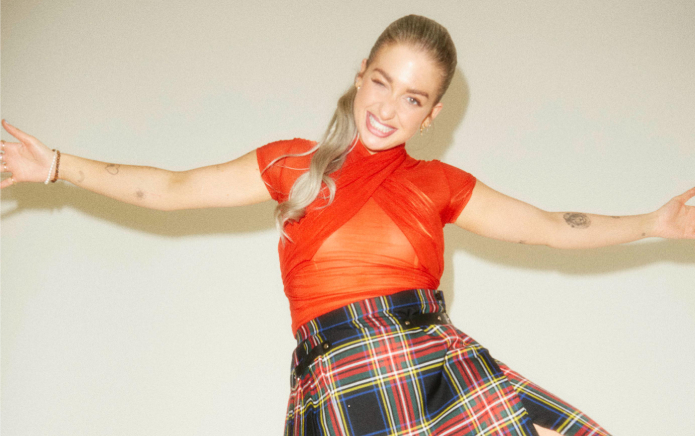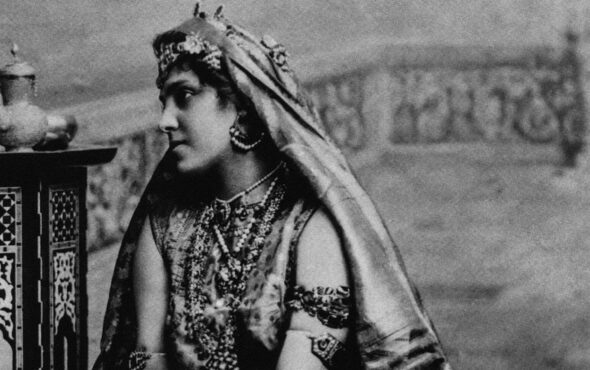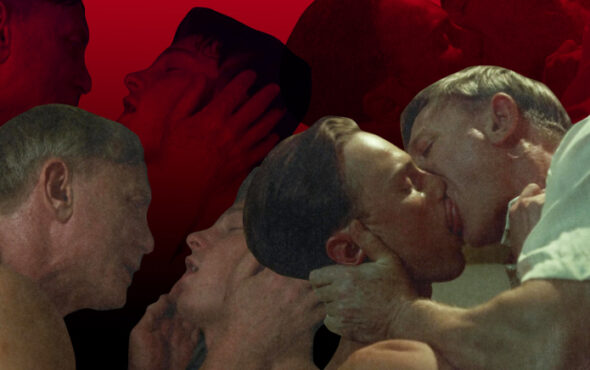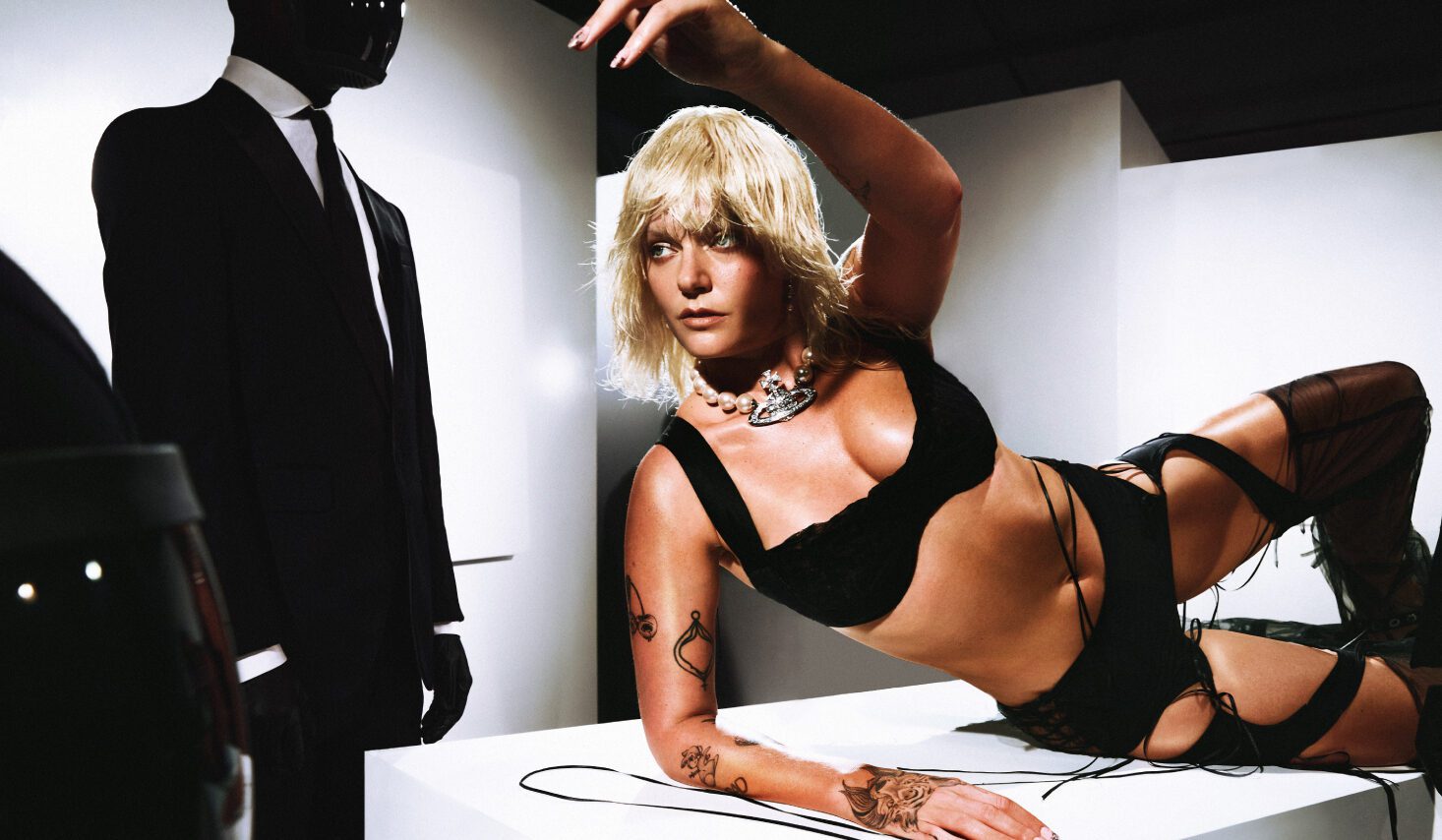
To any readers out there considering journalism as a career choice: go! for! it! One day, you might spend a balmy Thursday afternoon with a Swedish pop sensation chatting about music, love and her metallic corset and fully-erect golden dildo-assisted trip through the Nevada desert. Get! Into! Journalism! “It’s Wonder Woman with big dick energy,” aforementioned Swedish pop sensation Tove Lo says of the instantly iconic ensemble in the music video for her pulsating club banger 2 Die 4. (Watch it now). It was the “perfect pop bitch moment” says the singer, who released her fifth studio album Dirt Femme in October to rave reviews with fans hailing the pop assassin as “ahead of her time” in her Whitaker-Malem pegging harness and “space babe” couture. “I always want to do things that have an unexpected twist where people are like, ‘Wait, how do I feel about this?’” Tove says. “I want to lure that side out of people.”
Fronted by synthpop anthem How Long, taken from the soundtrack of Euphoria season two, Dirt Femme is one of the boldest and catchiest albums of the year; stacked with experimental pop beats and sing-along hooks accompanied by Tove’s signature mixture of camp and confessional lyricism. Let’s not forget the accompanying visuals in which Tove dons male drag, casually chugs a massive pint of lager, straddles a CGI dinosaur and shatters the heart of a robot in a futuristic world. Speaking with GAY TIMES over Zoom from a “back alleyway in Birmingham” on her 2022 European tour, Tove tells us that Dirt Femme is – bold, but understandable statement incoming – her “favourite album” and era to date. “In my mind I’m like, ‘Do I say that every album?!’ But I don’t think I do,” she laughs. “You have your whole life to write your first album and then there’s the time crunch and expectation of the second one. Even though I’m very proud of all my albums – I really stand for all of them – there’s something about having more time and no pressure and not having to play it for an A&R.”
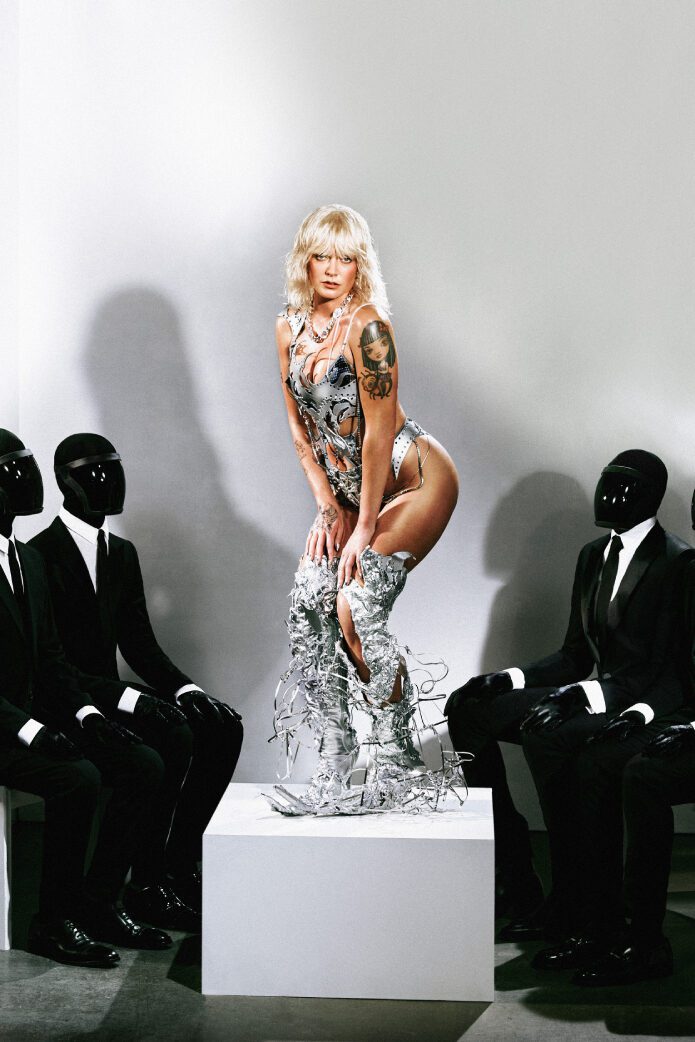
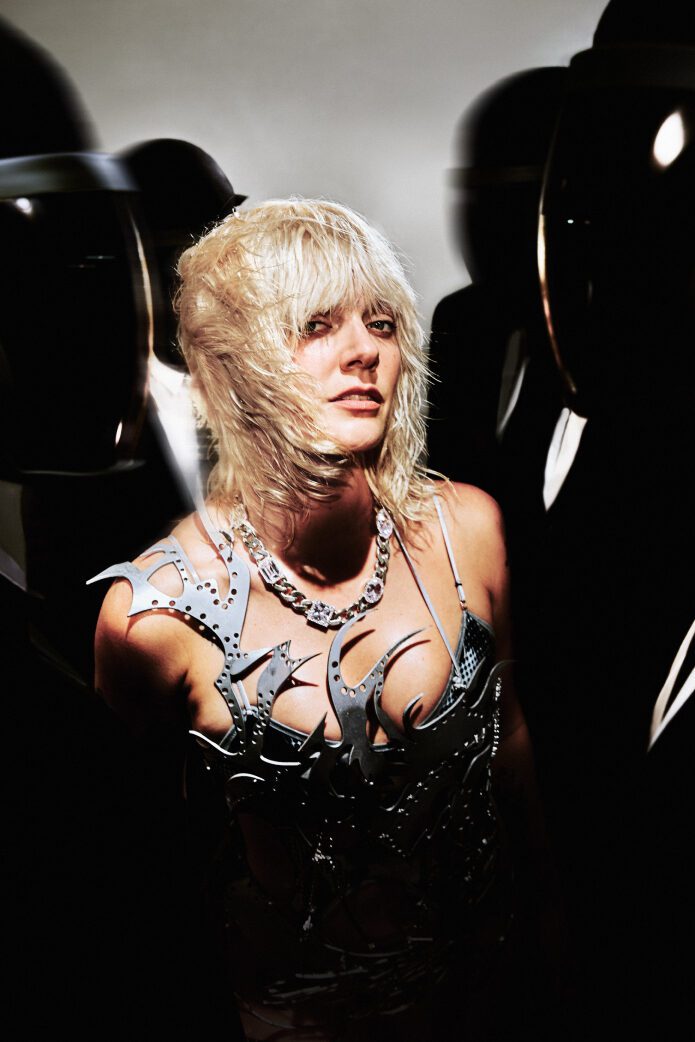
Dirt Femme marks Tove’s first album as an independent artist. While she considers her bout in the major label system as “lucky” because she was allowed to release music that was authentically her, she often faced opposition for how “commercially viable” her tracks are. For example: Disco Tits – the definition of pop crack – sees Tove proclaim that she’s “fully charged, nipples are hard and ready to go” (same!) while its seven-minute film features a frisky puppet as her co-star on a raunchy, drug-assisted road trip. “Even if I had to put up a little bit of a fight there was never a, ‘You’re not putting this record out!’ kind of thing,” she says, “and they have the power to do that if they wanted to.” But after eight years, it was time for Tove to possess full creative control, “work with whoever I want to and decide where the money should be spent.” Now, she continues, “I can be creatively free.”
This newfound freedom is evident on Dirt Femme. Although Tove has always been painstakingly honest with her songwriting and visuals – the Fairy Dust film memorably featured masturbation, sex, drug use and suicide – album five explores issues that she hasn’t yet touched upon such as her rejection of a heteronormative life. On track two, the fan-favourite Suburbia, Tove tells her lover that she “never wanted babies” or a Stepford Wife kind of “marriage” over a slinky, trippy beat. Having grown up in a ‘protected, pretty safe’ environment in Scania County, Sweden, the star tells us that she “felt a bit out of place” and continuously sought a life that wasn’t predestined for her. “I feel very spoiled saying that because that is a very beautiful dream,” she admits. “Why would you not want that life? I just don’t want that. I’ve had all these feelings awakened but, also, me and my husband live in a collective with three people. My community is a very mixed bag of everything and I realised it’s up to me if I want to fall back into this sort of traditional life or not. I don’t have to just because I’m married.”
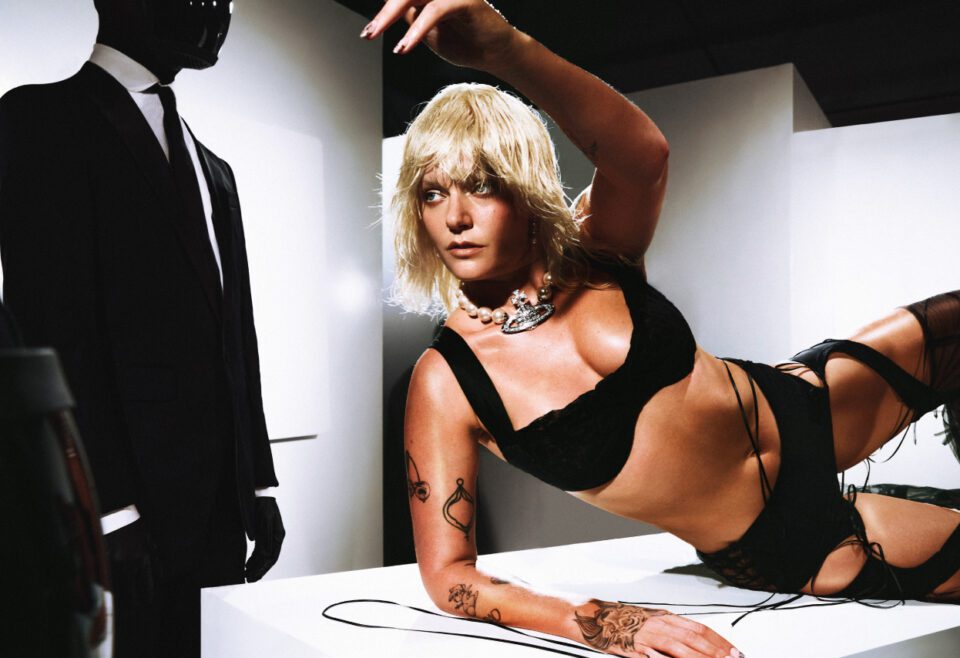
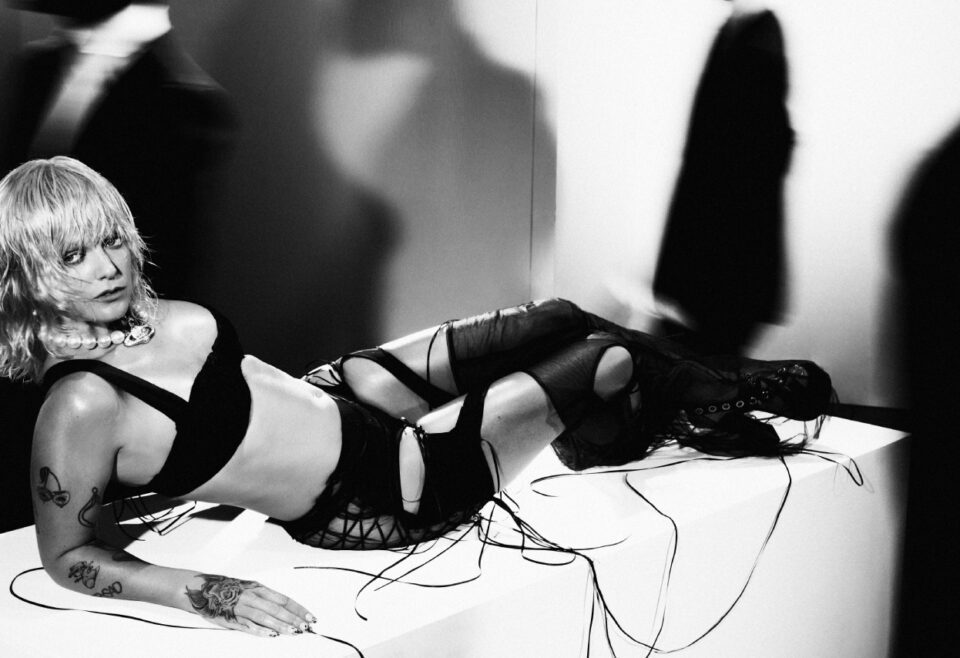
Suburbia was, unsurprisingly, a resounding hit with Tove’s loyal LGBTQ+ listeners who hailed it as a queer non-heteronormative anthem. Her traditional friends didn’t feel the same way, however. “They didn’t like it at all. They felt it was a personal attack on them. I do understand that…” she starts, before clarifying her love for the baby species: “I love babies. I have nothing against babies! That doesn’t mean that everybody has to want that, though, and it doesn’t mean I’m criticising you for choosing that. But, I think whoever gets offended by the song is someone who isn’t comfortable in their own choices or doesn’t want to admit to some of these feelings because that would make them a terrible parent or something. At least in my experience, I guess there’s just this kind of acceptance and openness about originality and searching for yourself and expressing yourself in different ways, which is so much more present in the queer community. I think a lot of people look to traditional life for safety. I feel like I’ve always listened to that other part of myself that’s like, ‘This can’t be all there is it, is it?’”
Inspiration for Dirt Femme, which follows her acclaimed fourth album Sunshine Kitty, originated from a moment of introspection during the coronavirus pandemic as she reflected upon her momentous 10-year career, which includes a quintuple platinum sleeper hit in Habits (Stay High), Grammy and Golden Globe Award nominations and collaborations with artists such as Charli XCX, Nick Jonas, Lorde, Ellie Goulding and Duran Duran. At the start of the pandemic, Tove’s record deal expired, she wasn’t able to go on tour and she wasn’t doing any press, resulting in a creative block. “It just came from a very questioning place, I guess,” she says, before sharing how Dirt Femme ultimately came to fruition: “That combined with the longing to go out dancing again and spending more time listening to dance music blended into this confessional dance album.” On Dirt Femme, Tove continues to weave deeply raw confessions and brutal memories into – and disguised by – infectious dancefloor-ready beats. In the opening verse of Grapefruit, she remembers past body issues as she sings: “Counting while I run the tap, I’m on my knees / Choking on my hands all night in my sleep / Counting all the calories, now get ‘em up / Body positivity, help me out.” Tove says she “waited the right amount of time” to discuss this difficult period in her life and is no longer “triggered” by it. “It’s very much part of my past,” she says, “but it’s still something I went through.”
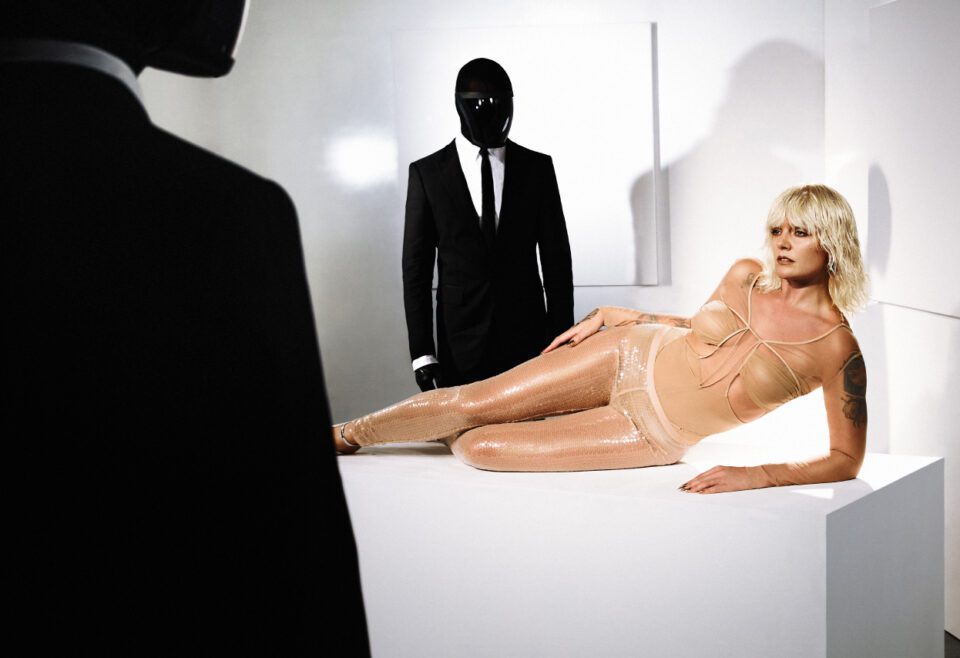
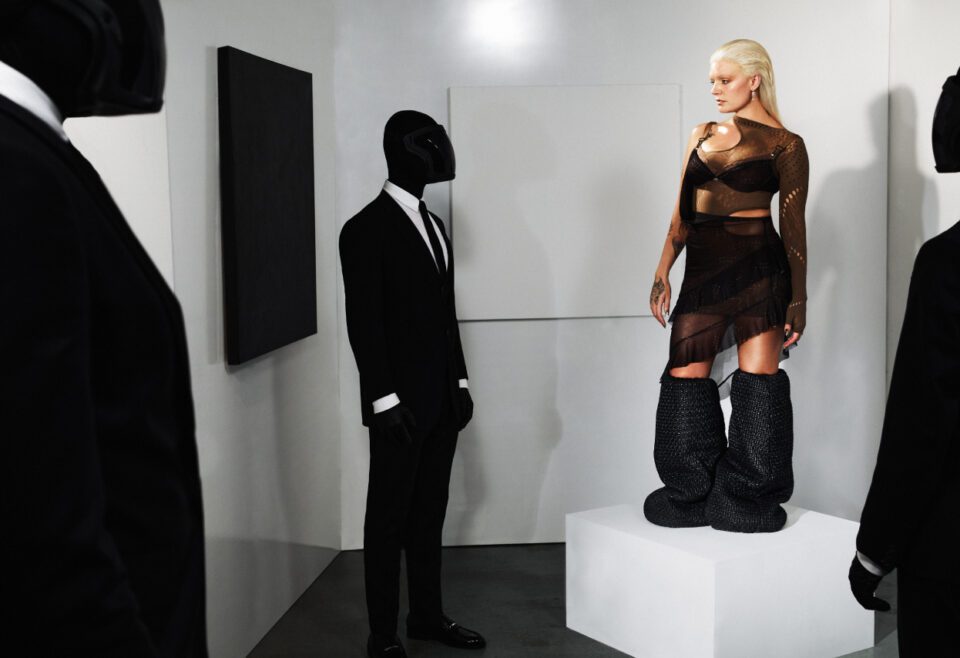
With her role in the Swedish movie The Emigrants, in which she starred as an “alcoholic sex worker from the 1850s” called Ulrika, Tove found herself reflecting on her teenage struggles with an eating disorder. She was required to lose weight to fully embody the “starving” character. “It wasn’t in any way like, ‘You don’t look good, we need you to lose weight.’ It was for the role and it was said to me with a lot of respect,” she clarifies. “I thought it had been long enough for me to handle it, so I went on a diet for the first time in 10 years. All of the memories came washing over me and I got thrown back into old behaviours that were filled with so much anxiety and pain. I had to write the song but I was a bit nervous like, ‘Am I going to be able to do this now? Do I want to open this bag?’ I think, always dare to be honest and vulnerable. There’s so many people that I’ve talked to saying, ‘I struggle with it too. How did you get well? I feel like I can’t break the cycle.’ There’s still so much anxiety around food.” Tove describes the response to Grapefruit as “beautiful”, adding: “For me, when I was going through it and feeling really shitty, I didn’t like to listen to body positive songs because it made me feel like I was failing. ‘Why don’t I feel that way about myself?’ So, I like to listen to songs that describe how I was feeling at the time and that’s why I wrote it from that perspective. So, the response from fans has been amazing. It seems like it’s really helped to heal or comfort a lot of them who struggle with it. It makes me feel like it was worth it, you know?”
Now, Tove is so far into her recovery that she’s become well-known for flashing her breasts slash Disco Tits to her audience. Admitting that it started as an accident, she laughs: “My boob just fell out of my top [during a show]. The reaction was hilarious so I started doing it. Being as naked as I am in those situations, it’s me celebrating getting over that and being in a place where I really love my body. That’s a mini victory for me every time.” Her confidence on stage is also evident in her Wonder Woman and “space babe” aesthetic – golden dildo in hand slash groin. After initially burying her femininity at the beginning of her career to appease the music industry’s cis-het male executives, which she has spoken at large about in past interviews, she’s finally decided to embrace her feminine traits. “I’ve become way more interested and comfortable in fashion and realising it’s an enhancement of my expression, and not me trying to hide my imperfections,” Tove explains. “It was honestly during the pandemic binge-watching RuPaul’s Drag Race. I was watching all these incredible creators and performers and I was like, ‘I need more of that.’” She gave us exactly that – more – when she made an inevitable appearance on the series earlier this year for All Stars 7, the franchise’s first-ever winners’ only season, sporting a Marie Antoinette-inspired dress and cake helmet. “It was so funny because we had those screens between us and we were sitting really far apart so I could barely hear anything,” she remembers. “They cut it together really well, where I don’t come off as really stoned or in a different world.” Tove subsequently went viral for the ensemble and for RuPaul’s pronunciation of her name, ‘Toovayloo’, which – breaking news alert – is… wrong. “[Drag Race] has made people really nervous [about my name] again, this is great,” she laughs, taking the various mispronunciations in her stride. “I’m being a little bit of a brat about it. I’m like, ‘Yeah, how do you wanna say it? Tell me!’ (It’s ‘Too-Veh’ by the way.)
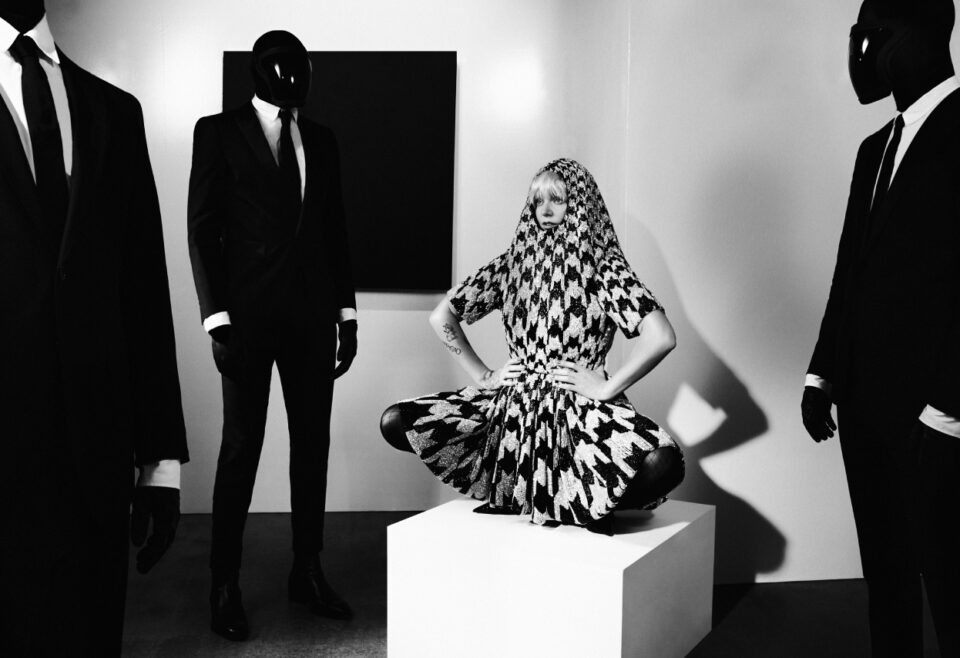
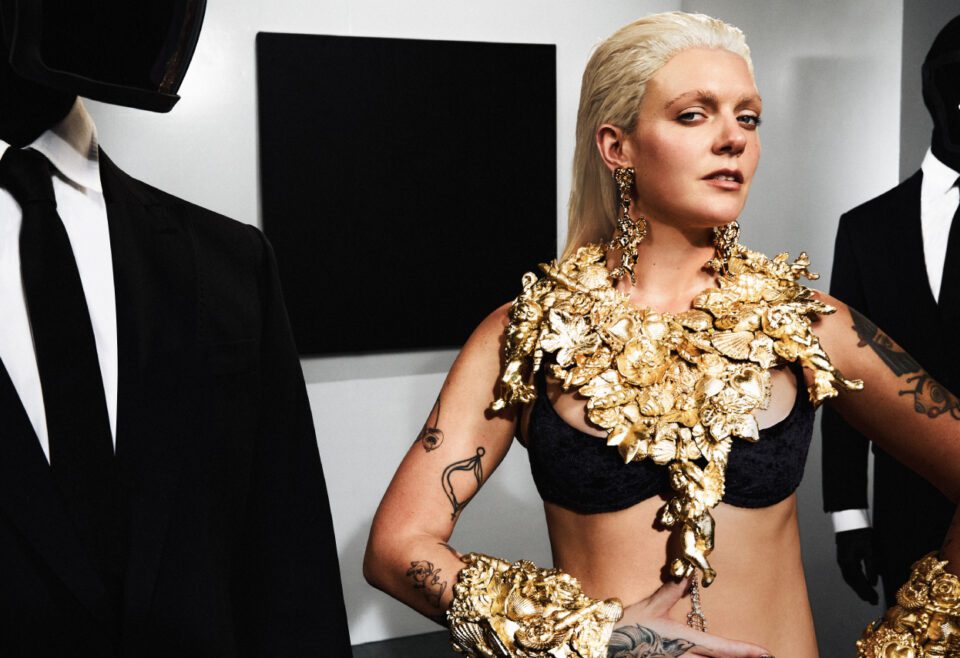
“[Drag Race] inspired me a lot,” she continues, “all the queens inspired me to step out of my box and add more elements to my artistry. I know I give it all in music videos, but in terms of my personal energy, that needs to be reflected more in my fashion to elevate the experience of my music. I feel like I’m ready for this step!” Discussions surrounding toxic masculinity and feminine energy during the #MeToo movement also inspired Tove to think about gender roles in “a different way”. “Now, it’s starting to understand that it’s appreciated in all humans and that it’s not tied to ‘man means masculine and woman means feminine’. It’s so much more nuanced than that. It exists in all people.” Tove continues: “I started to look at myself like, ‘Wait, I do that? I play into those traits when I’m around all men just to make sure they respect me and hear me’ – obviously talking about the typical group of straight men. I feel like it’s changed, at least the world I’m in. And we still have a long way to go. But I feel a big shift since that movement.”
As our conversation comes to an end, I ask Tove how much positive change she’s witnessed since arriving in the music industry with her debut album, Queen of the Clouds. Predominantly, it’s how she’s ‘spoken to’ by the press. “I’ve always talked back, but I think now, you’ll get into trouble if you say something disrespectful,” she says, before recalling how she would often be labelled “the bad girl, bad role model, trashy party girl who was too slutty” by journalists, who would – get this – question her on being a “shitty role model” for young women. “I had one woman ask me, ‘So, why do you think so much about sex? Is that because you want to try and make them fall in love with you or something?’ I was like, ‘Sorry, did you ask me if I sleep with people to make them fall in love with me so that I can get into a relationship? What are you even saying?’” During another radio show in the United States, the host crudely questioned her on Queen of the Clouds’ themes of “sex, love and pain”. “He said, ‘Obviously, we know the best part and that’s the sex.’ I saw where this was going. He’s like, ‘Do guys know that when you fuck them, you’re going to write a song about them? Let’s say that I’m fucking you on this table, what would you write about me?’” Tove’s tour manager swiftly shut down the interview. “The tone and how they look at you and how they speak to you…” she says. “I don’t mind a conversation about sex with a straight man, I don’t care. But it’s the way that he said it. It’s gross and creepy.” Eight years later, Tove ‘feels a shift’ in the industry, particularly from straight men. (Maybe we avoid eradicating the straight male species for now? Let us know your thoughts!) “There’s been a big change,” she shares. “I’m sure it’s, sometimes, just out of fear. If I have an interview with a straight guy, it’s changed so much. I do believe there’s been some good there.”
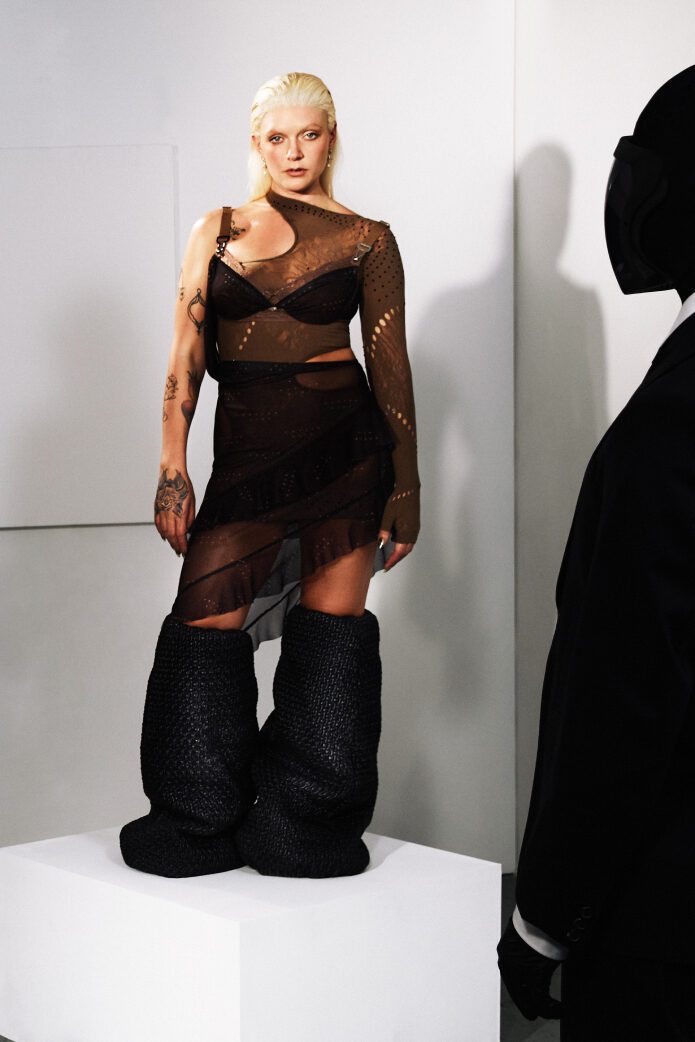
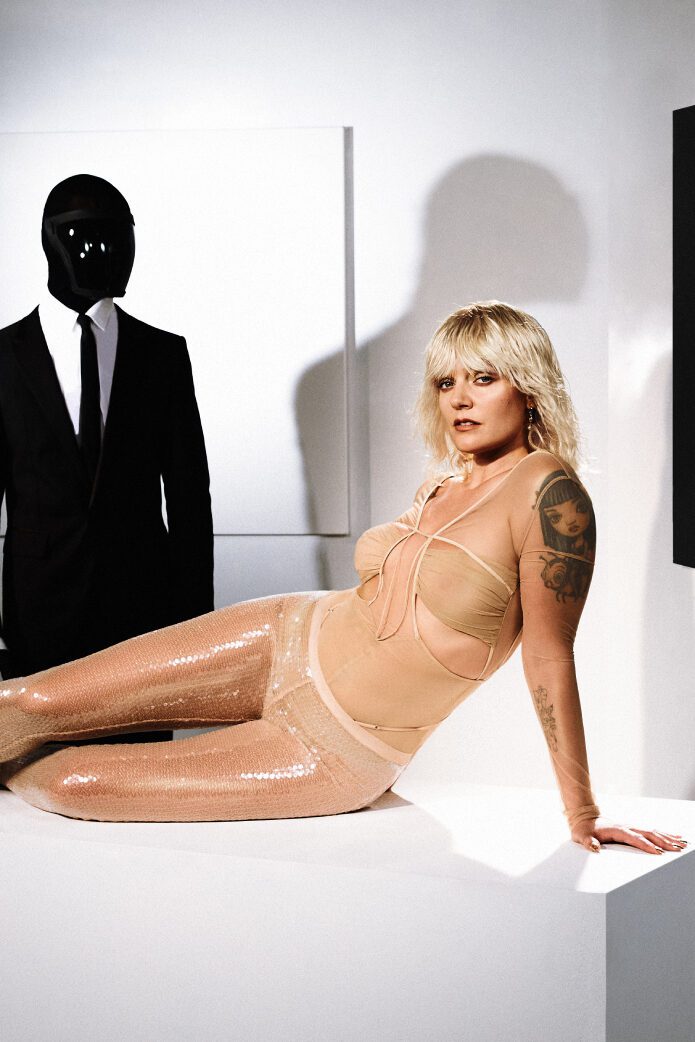
Reflecting on her career so far, Tove reveals that her “favourite moment” is when she released her debut album, which she calls an “unreal” experience after being her own “biggest champion” and persevering through rejection from the aforementioned cis-het males. The album ultimately went platinum in various territories including the United States, boasts over two billion streams on Spotify and – best part – launched the career of one of pop music’s most innovative and daring artists. “Also, doing this independently,” she explains further. “I feel like I’m doing everything for the first time again and it’s really special.” Over the next few months, Tove will continue to promote Dirt Femme on tour complete with flashing breasts as well as “bras and underwear” thrown from fans on stage. “I haven’t gotten dildos thrown yet,” she tells me, “but I’m sure they’ll come.”
Dirt Femme is out now.
